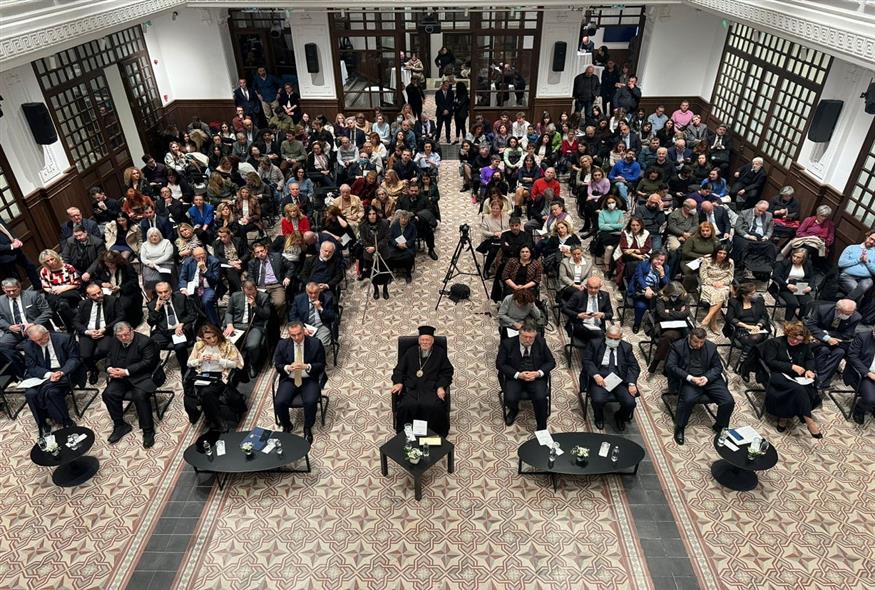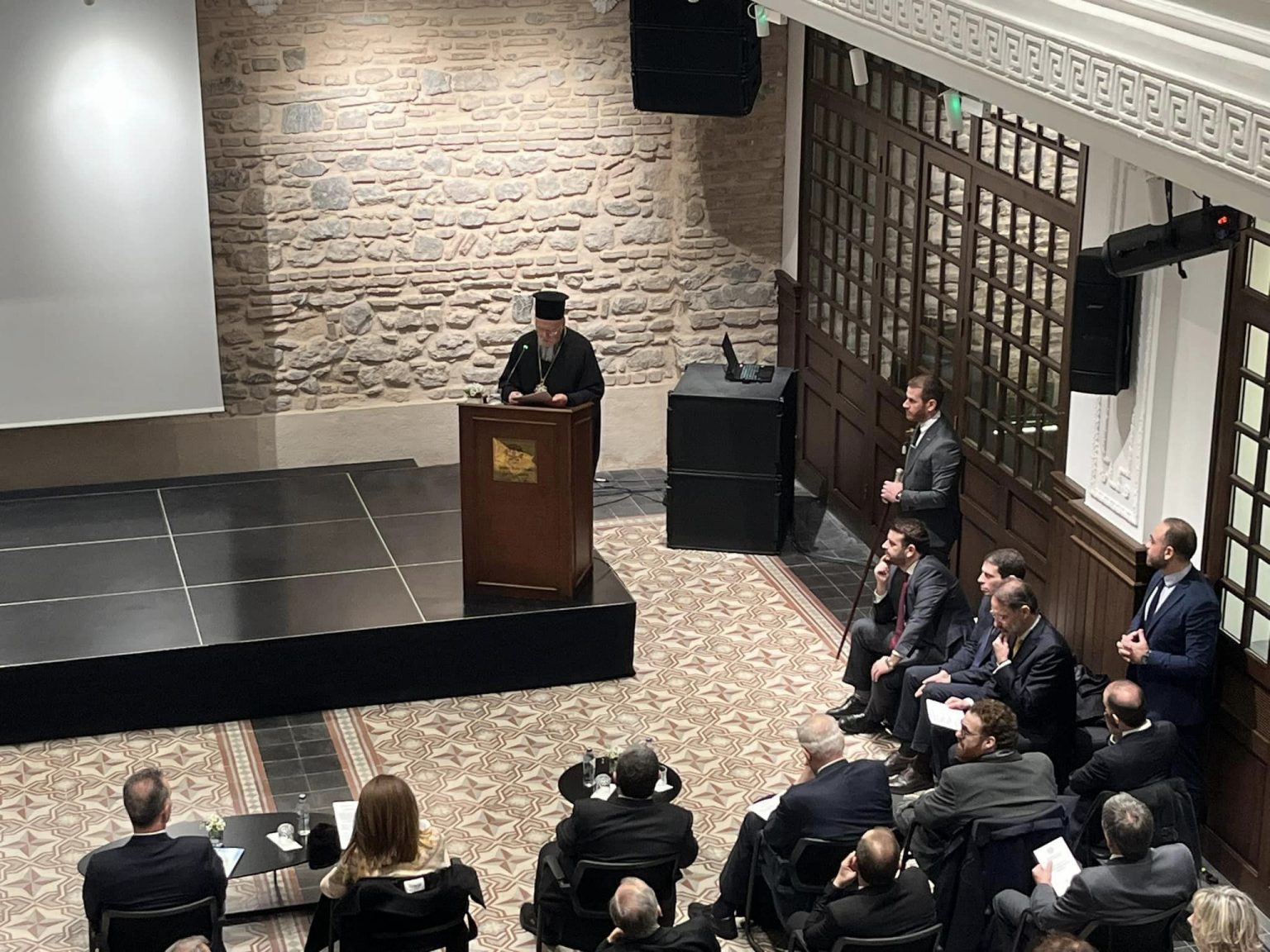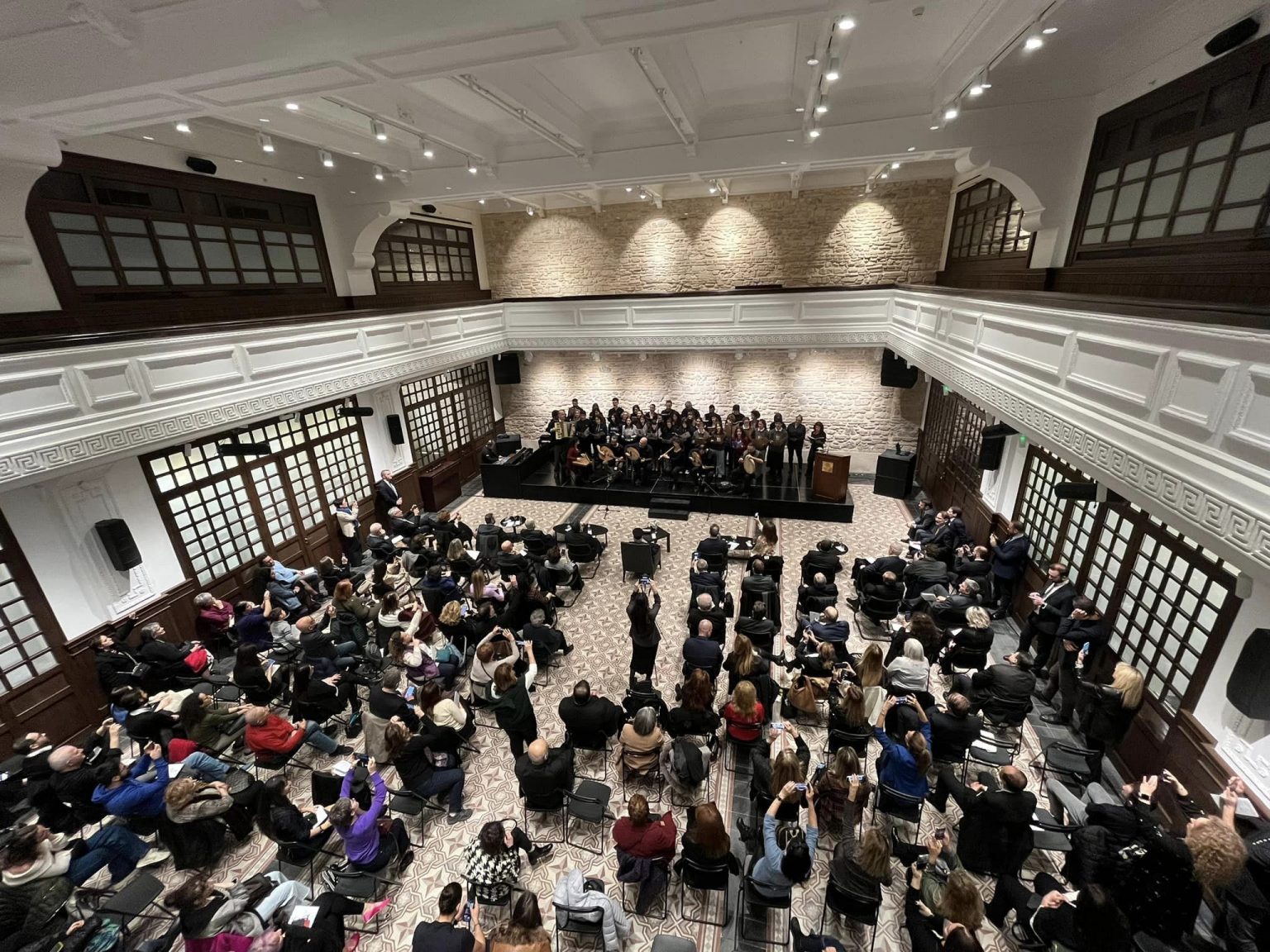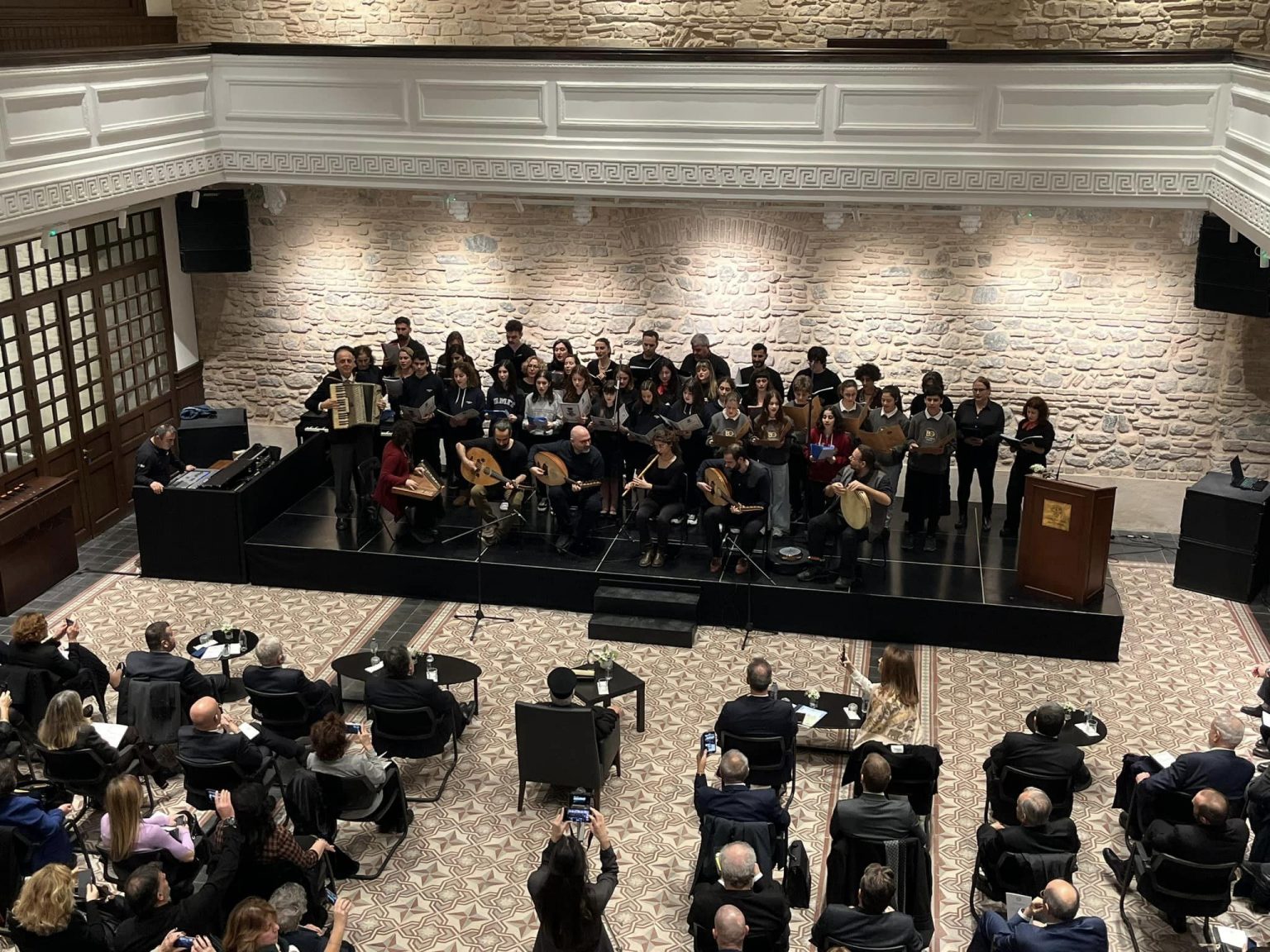Ecumenical Patriarch Bartholomew: “We have no choice but to preserve and cultivate our linguistic heritage”


His All-Holiness Ecumenical Patriarch Bartholomew attended and addressed a message at the event which had the theme of “The Greek language ‘in the city of Constantinople'” and was organised by the Consulate General of Greece. This event took place on Friday afternoon, 9 February 2024, at the Cultural Centre of the Greek Diaspora, housed in the historic Galata Urban School building. The occasion marked the celebration of the International Day of the Greek Language.
In his speech, His All-Holiness referred to the importance and contribution of the Greek language to world culture, pointing out that it has been characterised as “the mother tongue of the spirit”, in which, he added, unparalleled works were written that changed the course of humanity and of history. “Among them, the New Testament stands out, ‘as if God chose the Greek language to announce His Gospel’, as it has been said”, he pointed out.
“Greek is the language that constantly reminds us that there is truth and depth to things and not just the square logic of utilitarianism. A poetic and contemplative language that dislikes vulgarity, that when have knowledge of it you can only philosophise and theologise, and it makes you feel like a poet. It is the language that deepens the mystery of the world, reveals harmony, which “loves to conceal itself “, which knows that wisdom and truth are found “deep down”. A language that does not adapt to Procrustean logic and Solomonic solutions, that does not reconcile with objectifications and the priority of means.
Our language is the key to enter the greatest spiritual paradise of the universe. Greek, as Professor Mr. Georgios Babiniotis writes, “was sculpted over more than 30 centuries in the expression of subtle concepts of philosophy and science, coarse concepts of political speech and state institutions, complex concepts of the evangelical discourse and patristic theology, as well as deep contemplative concepts of ancient drama, prose and poetry” (Dictionary of the Modern Greek Language, Athens 2012, Introduction: The peculiarity of the Greek Language, p. 13). How coincidental is it that our language has a “privileged position” among the languages of the world, that “the concept of continuity, for the Greek language, is not an ideology, but a tangible linguistic reality”?


This language has for many centuries been the speech of the native inhabitants of this City, the City of the Archbishops, Gregory the Theologian, the poet of theology, and the “golden speaking” John Chrysostomos, the “Demosthenes of the Church”, the City of the polyhistor Photius of the Great, hymn writers, poets and philosophers. Here the Logades of the Nation, the Central Education Committee and the Hellenic Philological Association were active, pioneer men and women in education and literature emerged, here, at the beginning of the 20th century, a lively debate was unfolding about Modern Greek and Katharevousa.
The Patriarch then recalled the decisive contribution of the Church in the rescue of our linguistic identity.
“The Church founded schools, with the certainty that knowledge and Christian faith constitute the core of our individuality. Every day we look at the Great School of the Nation at the Phanar, which symbolises this titanic effort of the Church in difficult times, and the belief that the knowledge of the Greek language alone is an introduction to a high culture, to an ethos of freedom, to a unique way of being and co-existing, thinking and acting. And today, the Ecumenical Patriarchate continues this tradition as a defender of our linguistic identity.
The Learning of our language has never been an easy task. It required and requires intelligence, effort and hard work. However, this effort bore fruit a hundredfold, and contributed to the development of the personality, it gave us the satisfaction of rejoicing in our cultural and spiritual wealth, poetry and other literature, church hymnology, escaping the traps of sterile self-interest and expediency.
The “containment of the useful” in our time, in which, as Odysseus Elytis says, “if you have nothing to gain from what you do, everyone looks at you with open mouths” (Elytis’ Greece, Athens 2021, p . 120), is exacerbated by the dominance of the solid logic of computers and the technopoly, which dominates the field of education. We would say, paraphrasing a corresponding phrase, that “learning the Greek language does not thrive as an accessory of a technologically-dominated education”. At this point it is difficult to find the vital solution”.


Concluding his greeting, His All-Holiness referred to the responsibility and struggle of all those who represent the presence of Greek as a mother tongue in Constantinople, in relation to the multidimensional effects of the problem of the population shrinking of the Greek Diaspora.
“No effort is a luxury when we deal with the issue of preserving Greek knowledge and Greek language in the cradle of the Nation. One thing is absolutely certain: We have no choice but to preserve and nurture our linguistic heritage, the neglect of which will mean multiple contractions, a narrowing of our spiritual horizon. Many cultural struggles were won here, in the centre of the Romiosyni, under extremely difficult conditions.
And this present battle must be victorious, so that we can continue, as Elytis would tell us again, to call the sea, sea, the sky, sky, the sun, sun, and freedom, freedom. We are all called to a common effort, with self-confidence, with faith in God’s providence, and with the certainty that from him, of whom much has been given, much will be required, according to the biblical verse: “everyone who has been given much, much will be asked of him” (Luke 12:48)”.
The Ecumenical Patriarch and the large audience were welcomed by Ambassador His Excellency Mr. Konstantinos Koutras, Consul General of Greece in the City, who referred to the important work carried out in Greek Diaspora schools, while he also referred to the great interest shown by Turkish citizens in learning the Greek language.
Afterwards, Greek and Turkish educators, as well as Turkish citizens who have been taught the Greek language, held speeches on its relationship with Culture, Literature and Music, conveying, at the same time, their experience of the interest in learning the Greek Language that exists in the modern Turkish Society.


At the event, traditional Asia Minor songs were performed by the members of the choir of the “Istos” publishing house, which consists of Turkish citizens who are taught the Greek language, together with students of the Greek Diaspora Schools.
Also present for the event were Hierarchs of the Throne, clergymen of the Patriarchal Court, Archons of the Great Church of Christ, the Member of Parliament (SYRIZA) Ms. Nina Kasimati, University Professors from Turkey and Greece, and several Turkish students taught in the Greek language in Constantinople.




